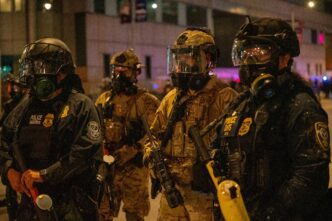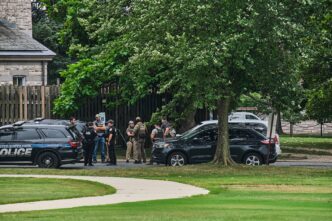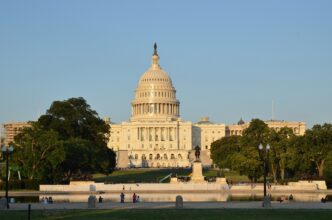In a rare diplomatic move, Slovak Prime Minister Robert Fico visited Moscow on Sunday to engage in discussions with Russian President Vladimir Putin. This visit marks one of the few instances where a European Union leader has met with Putin since Russia’s extensive military involvement in Ukraine, beginning in February 2022.
During this significant meeting, Prime Minister Fico arrived in Russia for what was described as a ‘working visit,’ with the Kremlin spokesperson Dmitry Peskov confirming the one-on-one nature of the talks. The primary agenda was centered around the international landscape and the supply of Russian natural gas. Currently, Slovakia, among other European countries, receives Russian gas through Ukraine, under an agreement set to expire this year. Ukrainian President Volodymyr Zelenskyy has stated opposition to renewing this deal, which Prime Minister Fico has argued is detrimental to Slovak interests.
After his discussions with Putin, Fico communicated via Facebook that he had previously informed EU leaders of his planned Moscow visit. He relayed that President Zelenskyy had expressed intentions to cease gas transit to Slovakia and was pushing for sanctions on Russia’s nuclear sector. Fico firmly opposed these measures, citing them as opposed to Slovakia’s reliance on nuclear energy. Additionally, Fico reported Putin’s assurance of Russia’s readiness to continue supplying gas to the West, alongside discussions about the ongoing military conflict in Ukraine and potential paths toward peace. Both leaders also considered standardizing bilateral relations between Slovakia and Russia despite the geopolitical climate.
Domestically, Fico’s trip attracted criticism from Slovak opposition parties. Slovakia is actively seeking alternatives to its gas supply, illustrated by recent contracts with Azerbaijan and plans to import liquified gas from the United States via Poland. This energy diversification is a strategic response to the uncertainties surrounding Russian gas continuity through Ukraine.
European visits to the Kremlin have been infrequent post-Ukraine conflict, with notable visits from Hungary’s Prime Minister Viktor Orbán and Austria’s Chancellor Karl Nehammer in the past. These engagements have often faced condemnation from Kyiv and other EU nations. Orbán’s stance, similar in some respects to Fico’s, has been to oppose extensive EU measures against Moscow, emphasizing negotiations for peace without clarifying the implications for Ukraine’s security or territory.
Prime Minister Fico’s resurgence in Slovak politics, after elections on a platform supportive of Russia and critical of American influence, further highlights the distinct approach he has taken regarding the conflict. His administration has stopped Slovakia’s military assistance to Ukraine and has been vocal against EU sanctions targeting Russia. Fico’s appearance on Russian television channels post-invasion reflects his willingness to engage with Kremlin media and discuss his perspectives, including criticism of Western actions as prolonging the conflict and sanctions being ineffective.
Looking forward, Fico expressed an intention to attend a military parade in Moscow next May, marking the 80th anniversary of the end of World War II in Europe. Such a move underscores his outreach to Russia, as he sees potential for diplomatic engagement, despite widespread opposition from other EU states.
Prime Minister Fico’s visit to Moscow underscores a complex and divisive approach to the geopolitical challenges posed by the ongoing conflict in Ukraine. His interactions with Putin reflect a significant divergence from the prevailing European Union stance and spotlight the geopolitical balancing act Slovakia navigates amidst regional and global tensions.
Source: News4jax








